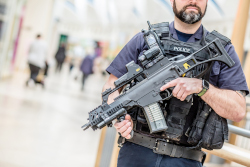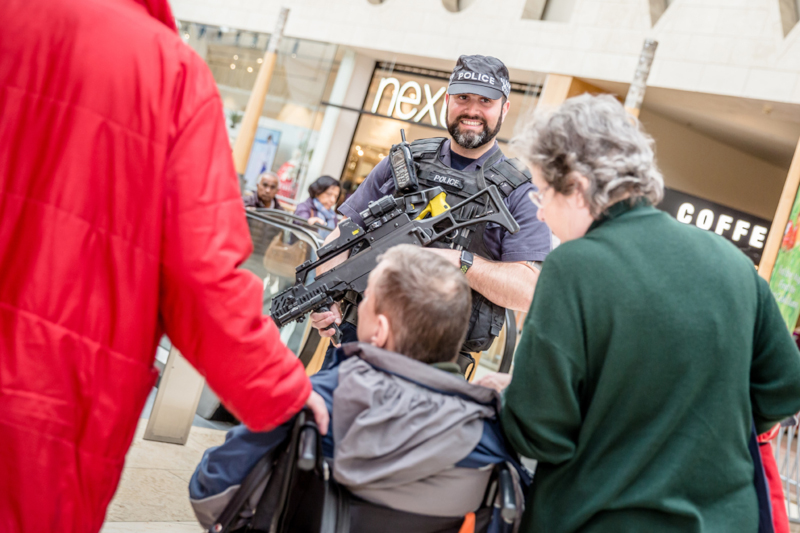Case Study from Marine to Police Constable
Category: Success Stories
Publish date: 29/11/2018

I joined the Royal Marines in 2009, fully aware that I would most likely be deployed to Afghanistan. After a successful tour in 2012 I found myself wanting to go back for further tours and more operational experience. While waiting, my subsequent postings saw me travelling the world on various training exercises and trying to find something which would both excite and challenge me. Royal Marines training was by far the most challenging thing I have ever done and I have had my fair share of excitement over the years too. But I wanted to put my skills to use in real life circumstances beyond training. With no likely operational deployments on the horizon I began to look at wider career options outside the service.
I joined Kent Police in December 2014. I had done my research and also spoke to serving officers to get a true understanding but was still apprehensive. I wasn’t the most academically minded so had to re-take my English GCSE during my final year with the Corps, before starting the application process. I found the initial training very demanding in a variety different ways but it gave me an appreciation of how many different circumstances an area Police Officer would have to deal with on any given day. After passing out in 2015 I served my first two years in one of the busiest districts in Kent. It was absolutely amazing and definitely lived up to my expectations. Not one day is the same and I was put in situations which would test me both physically and mentally. This has continued to be the case to this day in training and also operationally. I was kept extremely busy throughout and found that I would have to manage my time well to keep on top of the workload. It’s a very demanding and never ending job but also very satisfying.
From the outset it was my aim to become an Authorised Police Firearms Officer but I knew that I would have to complete the two year probationary period before I was able to do so. I went on an attachment with the Tactical Firearms Unit and then applied at the earliest opportunity. I was successful and started my Initial Firearms Course in August 2017. I’d say that my time in the forces did help to a certain extent, mainly with weapon handling and knowledge of basic tactics, but found that the decision making element was by far the most difficult element. In the Marines we only had a limited amount of options available to use in any given situation with a different use of force escalation. But as a Police Firearms Officer you have a variety of kit, equipment and resources available immediately, including less lethal options. Assessing a situation and potential threats very quickly, and making timely decisions in order to come to a resolution is difficult but this is honed with training and experience. Justifying my decisions and actions was by far the most crucial part though, particularly when dealing with threats posed by people who may have committed serious crime through to those suffering from Mental health illness (and trying to judge the difference).
People have a pre-conceived idea of what a Police Officer but like the Army, Navy and Air Force there are a diverse spectrum of jobs, even within specialist units. I’m now only three years in and progressing my career as a Specialist Firearms Officer within the Counter Terror Specialist Firearms Unit. This is a role which I can honestly compare to the Royal Marines. I’ve been deployed on multiple high threat operations now and undergone some incredible training. This includes fast roping, explosive entry into premises’ and tyre deflation with shotguns. We’re mainly deployed using covert tactics but also conduct maritime boat operations and even helicopter insertions. This is genuinely a dream job and sometimes it feels surreal getting paid to do it. I’m still learning with each day though and there are still a lot more courses and skills which I am able to do in the future, such as Tactical Medics, Advanced Motorbike Course and Rifle Officer. The rank structure is similar to the forces, and there is always an opportunity for promotion should you chooses it, so in my opinion this is an ideal transition. This is supported by the option to earn overtime, the best equipment, welfare and medical support, access to excellent gym and fitness facilities, and a definite sense of team work while serving keeping the public safe.
